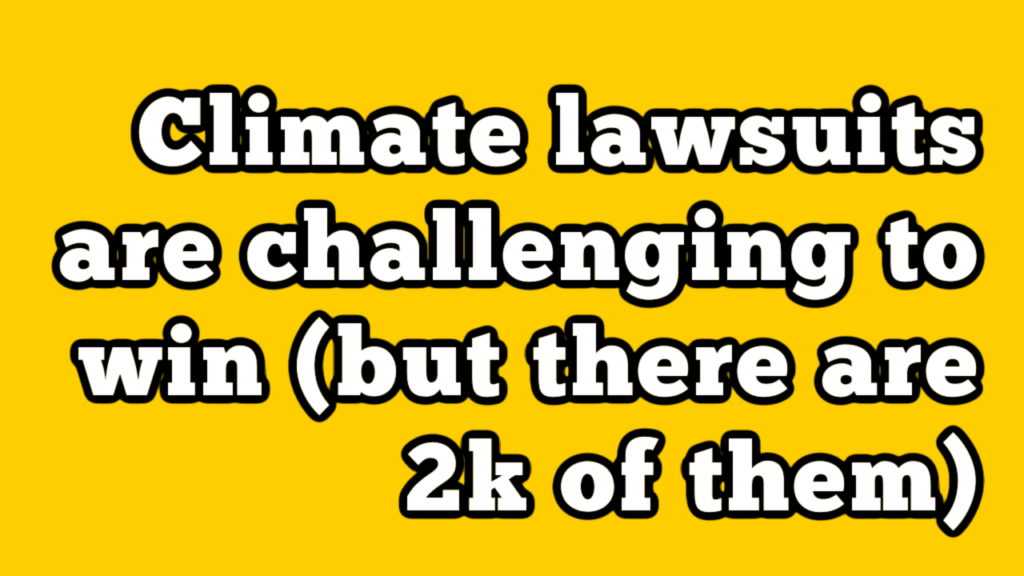Climate lawsuits are challenging to win (but there are 2000 of them)

Here’s the intro from this piece from Bloomberg Green’s Jeremy Hodges:
A year ago, a Dutch judge ordered Shell to slash its emissions harder and faster than planned. Victorious campaigners and lawyers declared the win would straighten up the biggest polluters and serve as a warning to others.
But that hasn’t happened yet. Climate litigation like the kind successfully brought against Shell is a crucial part of the toolkit needed hold companies and governments accountable for their climate promises and slow global warming. So what’s taking so long?
Part of the problem is the process. Putting together a successful case is incredibly challenging and can take years to conclude — the Shell case itself is still mired in appeals with no end date in sight. Costs can be prohibitive, requiring a team of expensive lawyers well in advance of the first day in court. That means the barrier to entry for nonprofits and individuals is often way too high, especially when taking on the financial might of Big Oil.
Despite the difficulties, there’s been an explosion in the number of climate lawsuits globally. Their number now hovers at nearly 2,000, according to the London School of Economics’ Grantham Research Institute on Climate Change and the Environment. One reason is that governments have adopted more laws tied to climate change as the scientific case to act with urgency has grown stronger. That’s allowed lawyers to bring cases that would have been impossible previously.
More importantly, several years of bold claims by companies making net-zero pledges and setting recycling targets has provided a new set of standards against which they can be judged. In many countries, government regulation isn’t strong enough to ensure businesses live up to their environmental goals, leading to increased support from civil society for court cases that seek to bring accountability.
But how those cases progress has depended on the political and legal environments of different nations.
In climate-forward Europe, the nonprofit Greenpeace sued TotalEnergies SE in France earlier this year for allegedly misleading the French public when it said would reach net-zero carbon emissions by 2050. A German cattle-and-grain farmer, among other citizens, is trying to force Volkswagen AG to reduce its production of polluting cars to zero by 2030.Both of these cases — at very early stages — could serve as indicators of how climate litigation plays out in Europe over the coming years and whether judges feel comfortable setting climate policy.
